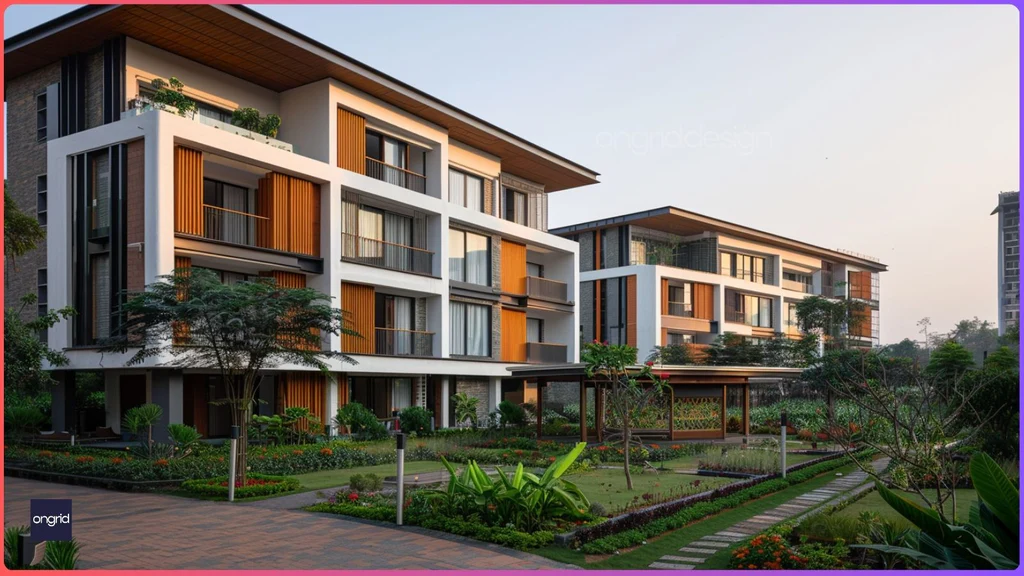Green Living in Urban Apartments: Sustainable Practices for Eco-Conscious Residents
Read latest blogs and articles from Housystan

The Information mentioned here was last updated on:
21/2/2026Green Living in Urban Apartments: Sustainable Practices for Eco-Conscious Residents
Introduction: The Urban Sustainability Imperative
As cities continue to expand and more people migrate towards urban centers, the importance of eco-friendly lifestyles grows ever more critical. Urban apartments, with their limited space and shared infrastructure, present unique challenges—and opportunities—for sustainable living. By adopting practical green habits, apartment dwellers can significantly reduce their environmental footprint, contribute to healthier communities, and even save money. This article explores actionable strategies for eco-conscious residents aiming to embrace green living in their urban homes.
- Verified Tenants/Buyers
- Unlimited Property Listing
- Zero subscription/charges fee
Why Urban Apartment Living Needs to Go Green
Urban areas are responsible for a significant portion of global energy consumption, waste generation, and greenhouse gas emissions. Apartment complexes, often characterized by high density and shared resources, can either amplify environmental problems or serve as models for sustainable living. By making eco-friendly choices, residents can help conserve precious resources, reduce pollution, and create more livable neighborhoods.
Energy Efficiency: Powering Down Without Compromising Comfort
Energy consumption is one of the largest contributors to an apartment’s carbon footprint. Simple changes can make a noticeable difference:
Switch to LED Bulbs: Replace all incandescent and CFL bulbs with energy-efficient LED lighting. LEDs use significantly less electricity and last longer, reducing both energy bills and waste.
Unplug and Use Smart Power Strips: Many devices draw power even when turned off. Smart power strips can cut off this “phantom load,” saving energy effortlessly.
Optimize Heating and Cooling: Set thermostats to reasonable temperatures and use fans or open windows when possible. Sealing drafts, using thermal curtains, and regularly cleaning HVAC filters also improves efficiency.
Choose Energy Star Appliances: If replacing appliances, select those rated highly by Energy Star. These appliances are designed to use less energy without sacrificing performance.
Water Conservation: Every Drop Counts
Urban apartments rely on shared water systems, making conservation even more essential:
Install Low-Flow Fixtures: Showerheads, faucets, and toilets with low-flow technology can dramatically cut water usage without reducing effectiveness.
Fix Leaks Promptly: A dripping faucet or running toilet can waste hundreds of gallons each year. Report leaks to your building manager or fix them yourself as soon as possible.
Adopt Water-Saving Habits: Shorten showers, turn off the tap while brushing teeth, and only run full loads in dishwashers and washing machines.
Waste Reduction: Rethink, Reuse, Recycle—and Compost
Waste management is a pressing concern in densely populated buildings. Reducing, reusing, and recycling are essential, but composting is gaining traction even in urban apartments:
Smart Sorting: Set up clearly labeled bins for recyclables, compostables, and trash. Check your municipality’s guidelines, as recycling requirements can vary widely.
Composting in Small Spaces: Even without a backyard, residents can use kitchen compost bins or worm farms to turn food scraps into valuable soil. Many cities offer community compost drop-off points for apartment dwellers.
Buy in Bulk and Reduce Packaging: Purchasing in larger quantities reduces packaging waste. Bring reusable bags and containers when shopping to minimize single-use plastics.
Mindful Consumption: Making Greener Choices
Living sustainably also means being mindful about what comes into your home:
Choose Sustainable Materials: Opt for furniture, linens, and decor made from recycled, upcycled, or renewable materials like bamboo, reclaimed wood, or organic cotton.
Support Local and Eco-Friendly Brands: Buy from local producers and companies that prioritize sustainable practices. This reduces transportation emissions and encourages responsible business.
Embrace Minimalism: Less really is more. By reducing clutter and only acquiring what you truly need, you help curb resource consumption and waste generation.
Indoor Green Spaces: Bringing Nature Into Apartments
Limited outdoor space doesn’t mean you can’t enjoy nature’s benefits indoors:
Grow Houseplants: Indoor plants not only improve air quality by filtering toxins but also create a calming, natural ambiance. Low-maintenance varieties like snake plants, pothos, and succulents thrive in apartments.
Start a Balcony or Windowsill Garden: Small-scale gardening is possible with container plants, herbs, or vertical gardens. Homegrown produce reduces your carbon footprint and adds fresh flavors to your meals.
Community Engagement: Collective Action for Greater Impact
Individual efforts are powerful, but collective action within apartment communities can multiply results:
Organize Green Initiatives: Propose building-wide recycling programs, energy-saving challenges, or community clean-up days. Working together fosters a sense of shared purpose and support.
Advocate for Sustainable Building Upgrades: Encourage property managers to invest in solar panels, green roofs, rainwater harvesting systems, or energy-efficient lighting and insulation.
Share Resources: Create a lending library for tools, kitchen appliances, or books, and coordinate carpools or shared bike storage to further reduce resource consumption.
Technology for Sustainable Living: Smart Solutions
Modern technology can empower residents to live greener lives:
Monitor Consumption: Use smart meters and apps to track your energy and water usage. Identifying patterns makes it easier to spot waste and adjust habits.
Smart Home Devices: Programmable thermostats, lighting systems, and water sensors help automate sustainability efforts and minimize unnecessary consumption.
Remote Work and Digital Solutions: Reducing commuting by working from home lowers emissions and can help decrease your overall environmental footprint.
Conclusion: Small Changes, Big Impact
Adopting sustainable practices in urban apartments isn’t just a trend—it’s a responsibility for those who care about the future of our planet. From energy and water conservation to waste reduction, mindful consumption, and community engagement, every action counts. By weaving these eco-friendly habits into daily routines, city dwellers can play a vital role in shaping greener, healthier, and more resilient urban environments. The journey towards sustainability starts at home, one positive choice at a time.